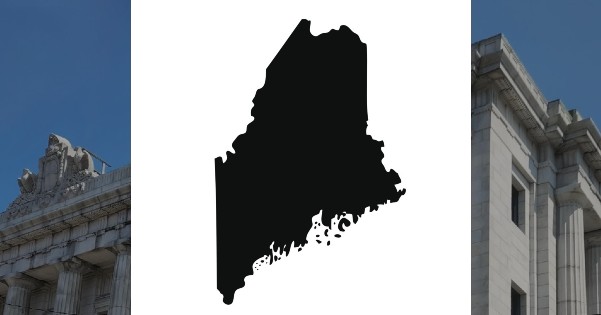Kurt Feiereisen v. Boise Cascade– Where a 2009 decree payment order on a 1987 injury was ambiguous and the Appellate Division interpreted the 2009 decree as establishing an ongoing compensation payment scheme, the ALJ in her 2022 decision addressing the employee’s petition for review and petition for order of payment did not err in finding the petitions were not barred by the 10-year statute of repose set forth in 39 MRSA sec. 95. With Judge Stovall dissenting the panel also held the ALJ erred by finding the employee had not waived a Rule 1.1 “14-day” violation claim when full notice of such claim was not presented until the closing position statements. Finally, it was proper to remand the case for further findings on the employer’s entitled to pension offsets under sec. 221(3).
In 2009 Judge Goodnough issued a decree granting petitions for awards on 1987, 1997 and 2007 injuries, all with separate employers who had operated the paper mill in Rumford, Maine. The order awarded 50% partial benefits for periods when the employee was “laid off or otherwise separated from the mill”. During that litigation there were periods where employees were subject to layoffs for economic reasons. In October 2010 the employee was taken out of work due to his work injuries, and he retired in 2011. NewPage, the employer at the time of the 2007 injury paid 50% partial incapacity benefits until 2020 when it settled its claims with the employee. In November 2020 the employee filed petitions for review and for order of payment against Boise Cascade on the 1987 injury and Mead Paper on the 1997 injury. Those employers maintained that no benefits were owed under the 2009 decree because the employee was not laid off and that Judge Goodnough fashioned the 2009 order in anticipation of future layoffs to protect the employee in the labor market during those periods by awarding 50% partial. The employee maintained that the order required payment of 50% partial when the employee stopped work for medical reasons.
In the 2022 decision, Judge Rooks rejected the employer’s interpretation 2009 order, found that employee’s counsel’s mentioning at hearing that a NOC was not filed was valid assertion of a 14-day violation even though such claim had not been raised at mediation or on the joint scheduling memorandum, that the 10-year statute of repose of former 39 MRSA sec. 95 did not bar the petition on the 1987 injury and in both the decree and a response to a motion for further findings, declined to make findings regarding Mead’s entitlement to pension offsets.
On appeal Boise argued that the ALJ’s determination that the 2009 decree “reset the clock” on the statute of limitations was unsupported by law. The Appellate Division did not directly address that conclusion because it determined the 2009 decree established a compensation payment scheme and the statute of repose was later tolled by apportionment payments paid by the Maine Self Insured Guaranty Association to NewPage on the 1997 Mead injury. Accordingly, the panel had concluded the ALJ did not err in her interpretation of the 2009 payment order. Where there is an ambiguity in a prior decree requiring clarification, the Appellate Division will review the ALJ’s resolution of the ambiguity under an abuse of discretion standard.
The appellate panel, with Judge Stovall dissenting, concluded the ALJ did err in finding the employee did not waive his claim of a 14-day violation. Such claim was not raised at mediation or listed on the joint scheduling memorandum. At hearing when discussing a 2010 out of work slip, employee’s counsel stated his belief that a NOC was not filed and that no payment was made. There was no argument of a 14-day claim until closing position statements. The ALJ found counsel’s statement at hearing was sufficient to assert the 14-day claim. The panel disagreed, stating that due process required sufficient notice of the claim and a full and fair opportunity to be heard, which did not exist in this case. The portion of the decree was vacated.
NewPage lump sum settled its 2007 injury with the employee in August 2020. The ALJ determined the non-settling employers liability was that which exceeded the potential claims of the settled 2007 injury and on that basis went on to conclude findings on Mead’s entitlement to pension offsets was not required. The ALJ further declined to issue such findings in response to a motion for further findings of fact and conclusions of law. The Appellate Division held the ALJ should have issued findings and remanded the case for further findings on that issue.
To view this decision, click here.
If you have any questions about this case or any other workers’ compensation matter, please let us know.

